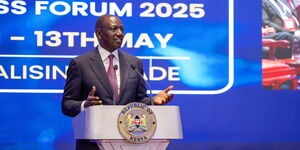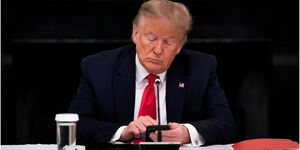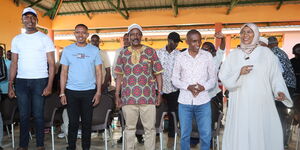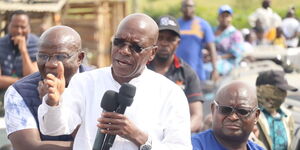Questions have emerged on the legal paths available to the Independent Electoral and Boundaries Commission (IEBC) after unfortunate cases of mayhem across several constituencies during the November 27 by-elections.
Reports of clashes and bloodshed were reported as early as Wednesday night in areas considered battlegrounds between the United Democratic Alliance (UDA) and opposition-affiliated candidates.
In Malava, opposition and UDA traded accusations on persons responsible for the mayhem, which threatened to derail the polls in some areas.
But what does the law explicitly state about politicians instigating violence before or during elections?
What the Law Says
Under the Elections Act, 2011, candidates can face disqualification if they are found to have instigated or been directly involved in election-related violence.
Section 65 of the act specifically criminalises "use of force or violence during the election period".
Further, Section 72 specifically states, “A candidate who, during a nomination or an election campaign engages in or knowingly aids or abets an agent or any person who supports the candidate to engage in bribery, violence or intimidation … shall be disqualified by the Commission and shall not be eligible to participate in the elections.”
Section 66 of the act, meanwhile, forbids the misuse of national security organs to intimidate voters or manipulate results.
Penalties for this can include fines, imprisonment and in the worst case, disqualification of candidates from contesting.
Under its electoral code of conduct, the IEBC has the authority to suspend or bar candidates whose supporters threaten peace and order.
In practice, disqualification may look like a long shot since voting has already taken place. However, the commission has the authority to nullify a victory if investigations confirm their involvement in mayhem.
By Thursday evening, however, there were no conclusive investigations which pointed to a specific candidate responsible for the chaos which was witnessed in several regions, although some political aspirants were caught on video in controversial circumstances after casting their vote.
In the wake of the violence, the IEBC, through chairperson Erastus Ethekon, announced that the commission is working closely with the police to ensure that all individuals responsible for chaos and violence during the mini polls are held accountable.
Additionally, Ethekon condemned the disturbances that occurred in Kakamega and Homa Bay, specifically in the Malava and Kasipul constituencies.
“I strongly condemn all acts of violence, intimidation, or disruption reported in isolated areas during the voting process. Elections are a democratic exercise, and no individual or group has the right to compromise the peace, safety, or integrity of the process,” Ethekon said.












